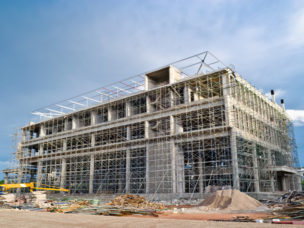Stay in the know
Subscribe to the Real Estate Blog and we’ll send you an email each time something new is posted.
Subscribe to the Real Estate Blog and we’ll send you an email each time something new is posted.
Blogs
Real Estate Blog
Former Railroad Rights-of-Way
Many cities and towns, particularly in greater Boston, are criss-crossed with former railroad lines and rights of way, some of which have not been used in many decades, and may not be discernible by inspection. Purchasers and developers of Massachusetts real estate should be aware of two statutes which affect former railroad property: (i) General Laws chapter 161C, §7 creates a right of first refusal on the proposed sale, transfer, or disposition of railroad property in favor of the Massachusetts Secretary of Transportation (the “Secretary”); and (ii) perhaps more troubling , G.L. c. 40, §54A requires the consent of the Secretary prior to issuance of a permit to build a structure of any kind on land formerly used as “a railroad right-of-way or any property appurtenant thereto,” a term which includes former railroad property that may be located outside of the former right-of-way.
In the case of purchases directly from a railroad company, G.L. c. 161C, §7 requires the railroad company to make an offer in writing to the Secretary, who may notify the railroad company in writing of its rejection of such offer, or in the event that no response is received within ninety calendar days from the date upon which such offer is made, then the sale or transfer may be completed.
The permitting problem under G.L. c. 40, §54A is more difficult to satisfy because it relates to former railroad rights-of-way, which, because of the passage of time, may not readily be disclosed by inspection or by a fifty year title examination. Cases continue to arise in which recently constructed buildings are later determined to have been built without the benefit of the Secretary’s consent.
The mere fact of former railroad ownership is not a defect in title which may be covered by title insurance, but is an issue of marketability, and, in any event, is excluded from coverage by the standard forms of title insurance policy which explicitly exclude laws and governmental regulations which restrict, regulate, or prohibit occupancy, use or enjoyment, dimensions or locations of improvements which may be erected on insured land. The 1994 case of Somerset Savings Bank v. Chicago Title Insurance Company, 420 Mass. 422 makes clear that G.L. c. 40, §54A “does not affect the owner’s title to the property. It is a restriction that may affect the value of the property and the marketability of the parcel, but it has no bearing on the title . . . .”
In the event that title discloses the existence of a former railroad right-of-way or land appurtenant thereto, the Massachusetts Department of Transportation has established a procedure to obtain such consent by making application with a request for a public hearing, and submission of development plans through a local building inspector, including the location of proposed buildings and current and/or former railroad property line boundaries.
Although no regulations have been promulgated by the Department of Transportation a “Statement of Procedures” has been adopted. In the event that the Secretary does not consent to the issuance of a permit for construction, then a property owner may recover from the Commonwealth under the provisions of G. L. c. 79, as a taking by eminent domain. In the event that an owner discovers that buildings and improvements have been constructed without having obtained consent from the Secretary an application may be made retroactively, though in that event eminent domain damages may be limited.
The best way to protect a purchaser is through a thorough and vigilant title examination, including a search for evidence of former ownership by any railroad company, or use as a railroad right-of-way, which may be disclosed either in the direct chain of title, or in confirming boundaries of adjacent properties, or by reference to municipal and regional atlases which may depict former railroad rights-of-way and other prior uses.




